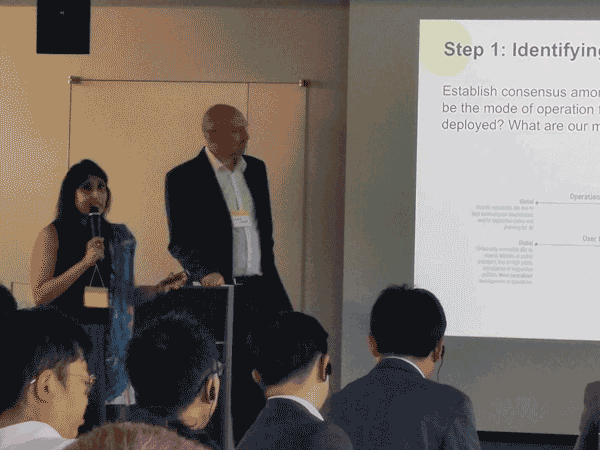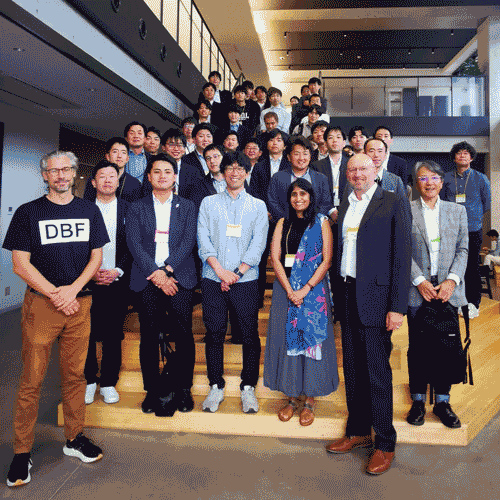E-Mail: contact[AT]its.hiroshima-u.ac.jp
(Note: Please replace [AT] with @)
On May 15, 2025, the 2nd Higashi-Hiroshima Mobility Workshop was held at Hiroshima University’s MIRAI CREA. The event was jointly organized by Hiroshima University and the Higashi-Hiroshima Regional Public Transportation Council as part of the Cabinet Office’s SIP (Strategic Innovation Promotion Program) Phase 3 project, “Development of a new mobility-oriented city with an agglomeration of places for social exchange” (MOD Project), led by Professor Akimasa Fujiwara.
Approximately 50 participants from 20 organizations—including universities, private companies, local governments, and national agencies—gathered to actively exchange views on new approaches to consensus building using mobility simulations that connect people and cities.
Dr. Tanvi Maheshwari from Monash University and Dr. Pieter Fourie from Hiroshima University introduced a case study from Singapore demonstrating how urban design and transport simulation, using tools such as Sketch MATSim, can be integrated to support collaborative planning. They emphasized the role of simulation in facilitating dialogue and exploration among diverse stakeholders, helping to enhance the flexibility of policy-making and contribute to more inclusive and well-supported planning processes.

The participants divided into three thematic groups: Institutional Design and Funding Schemes (facilitated by Prof. Akimasa Fujiwara, Hiroshima University), Technology Application and Intellectual Property Strategies (facilitated by Prof. Makoto Chikaraishi, Hiroshima University), and Engaging Diverse Stakeholders (facilitated by Prof. Yusuke Kanda, National Institute of Technology, Kure College).
The institutional design group exchanged diverse ideas on sustainable funding schemes. The technology group discussed practical challenges such as intellectual property handling and appropriate levels of API openness. The stakeholder engagement group explored ways to foster collaboration among various actors, including designing forums for public discussion, methods for resident communication, and partnership strategies with private companies.

Participants commented that the workshop offered “a rare chance to interact with people they don’t usually engage with,” and “an opportunity for in-depth discussion on sustainable initiatives that cut across institutional boundaries.” Insights from this event are expected to significantly inform the future development of local mobility strategies.
The MOD Project will continue to promote practical, interdisciplinary research and development through collaboration among academia, industry, and government.

MOD Project Offie
E-Mail: contact[AT]its.hiroshima-u.ac.jp
(Note: Please replace [AT] with @)
Date : 2025/05/19
Copyright © 2003- Hiroshima University